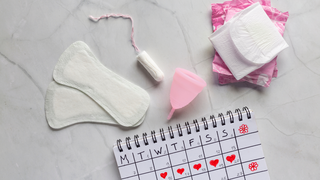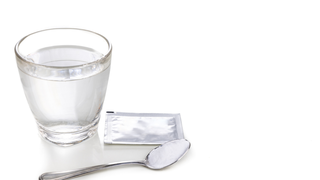What Exactly Is the Placenta?
The placenta is an organ that develops inside your uterus during pregnancy. It is like a bridge, as it connects with your bloodstream on one side and, on the other side, it connects to your baby through the umbilical cord. Your body passes the oxygen and nutrients to your baby while removing waste products through this organ.In this article:
How Does the Placenta Know What the Baby Needs?
The placenta responds to your baby’s needs by identifying the signals.- Your baby releases chemical messages (hormones and proteins) into the placenta, which help it understand whether more of a certain nutrient, such as glucose or calcium, is required.
- The placenta has special transport proteins which act like doors that open wider or narrower depending on what your baby needs more of.
- The placenta can also sense if your baby needs more oxygen and adjust the blood flow accordingly.
Why Is This So Important for Your Baby’s Growth?
Your baby grows at a fast pace during pregnancy.- Your baby is only about 2 inches long by the ned of 12 weeks.
- The baby weighs about 300 grams by the 20th week.
- Babies can gain up to 200 grams per week by the final trimester.
- Glucose (sugar) for the main energy source during growth.
- Proteins are essential for building muscles and tissues.
- Calcium is required for strong bones and teeth.
- Iron helps red blood cells carry oxygen.
- Folic acid is crucial for brain and spinal cord development.
What Happens If the Placenta Doesn’t Work Well?
When the placenta does not function normally, it is known as placental insufficiency, which can cause the following problems.- Slower growth of the baby (called intrauterine growth restriction).
- Low birth weight.
- Preterm birth.
- Preeclampsia (high blood pressure during pregnancy).
- Fewer baby movements.
- Unusual abdominal pain.
- Vaginal bleeding.
- Sudden swelling of hands, feet, or face.
Can You Support Your Placenta’s Health?
Your habits can help the way the placenta works, so focus on the aspects listed below to improve your pregnancy outcome.- Consume a nutritious diet rich in whole grains, lean proteins, fruits, vegetables, nuts, and dairy.
- Stay hydrated to support the smooth blood flow through the placenta.
- Stop smoking, alcohol, and drugs, as they restrict oxygen and nutrient supply.
- Go to your prenatal checkups regularly, as it helps your doctor monitor placental health through ultrasounds and blood tests.
- Manage stress by practising relaxation techniques, such as breathing exercises or gentle yoga.
What Role Do Emotions and Support Systems Play?
Pregnancy is as much about your emotional health as it is about being physically fit. Although the placenta handles the nutrient requirements of your baby, your mental health is responsible for balancing your own. If you stay anxious, it can lead to poor sleep and appetite.Being surrounded by your family and friends during pregnancy can be a great way to reduce stress. Involving your partner in this journey by going to checkups together can make you feel less lonely and also cared for. You can create a healthy environment for your baby when you feel supported.
A Simple Checklist for You
The following is a reminder list to help you throughout your pregnancy.- Eat iron-rich foods (spinach, beans, eggs, lean meat).
- Take prenatal vitamins as prescribed.
- Drink 8–10 glasses of water daily.
- Rest when your body feels tired.
- Track your baby’s movements, especially after 28 weeks.
- Go to all your prenatal appointments.
When Should You See a Doctor Urgently?
- If your baby is moving less than usual.
- If you experience heavy bleeding.
- If you experience severe headaches or vision changes.
- If you have sudden swelling or sharp abdominal pain.
Whether you’re pregnant, a new mom, or navigating postpartum, you don’t have to do it alone. Join our support group to connect, share, and support one another.
FAQs on How the Placenta “Knows” Which Nutrients the Baby Needs?
- Can diet alone ensure proper placental health?
A diet alone is an insufficient factor because genetics, medical history and your lifestyle choices are also equally important during pregnancy. - How can you know if your placenta is healthy?
You can know about the health of the placenta when your doctor performs ultrasound scans to check for blood flow and growth. There is no specific sign of an unhealthy placenta, so contact your doctor if your baby’s movements feel unusual or less. - Does stress affect how the placenta works?
Chronic stress affects the blood flow and nutrient delivery, but experiencing stress occasionally is normal. You can try to relax your mind in healthy ways and create emotional support to improve your pregnancy health.











